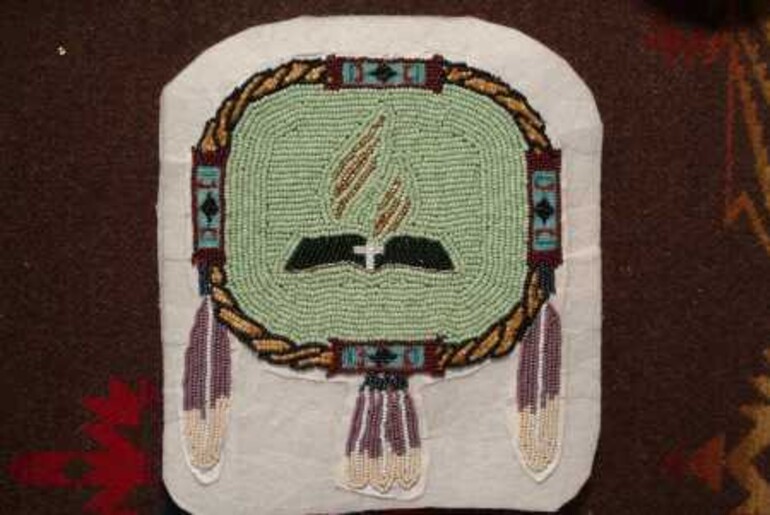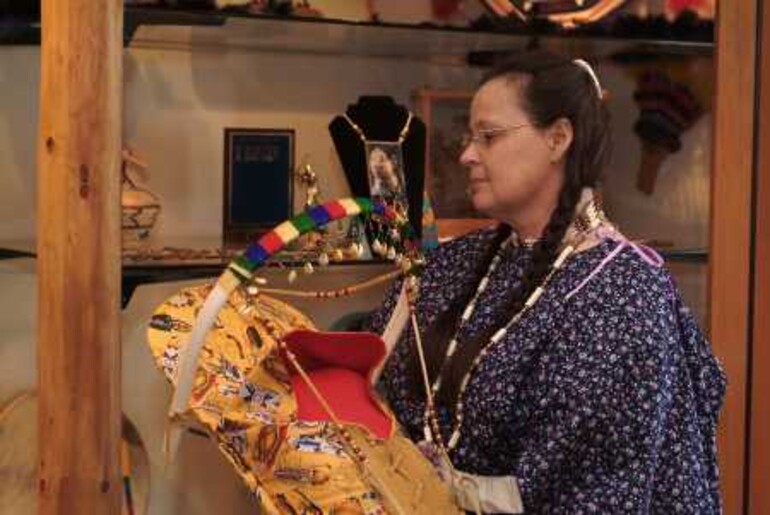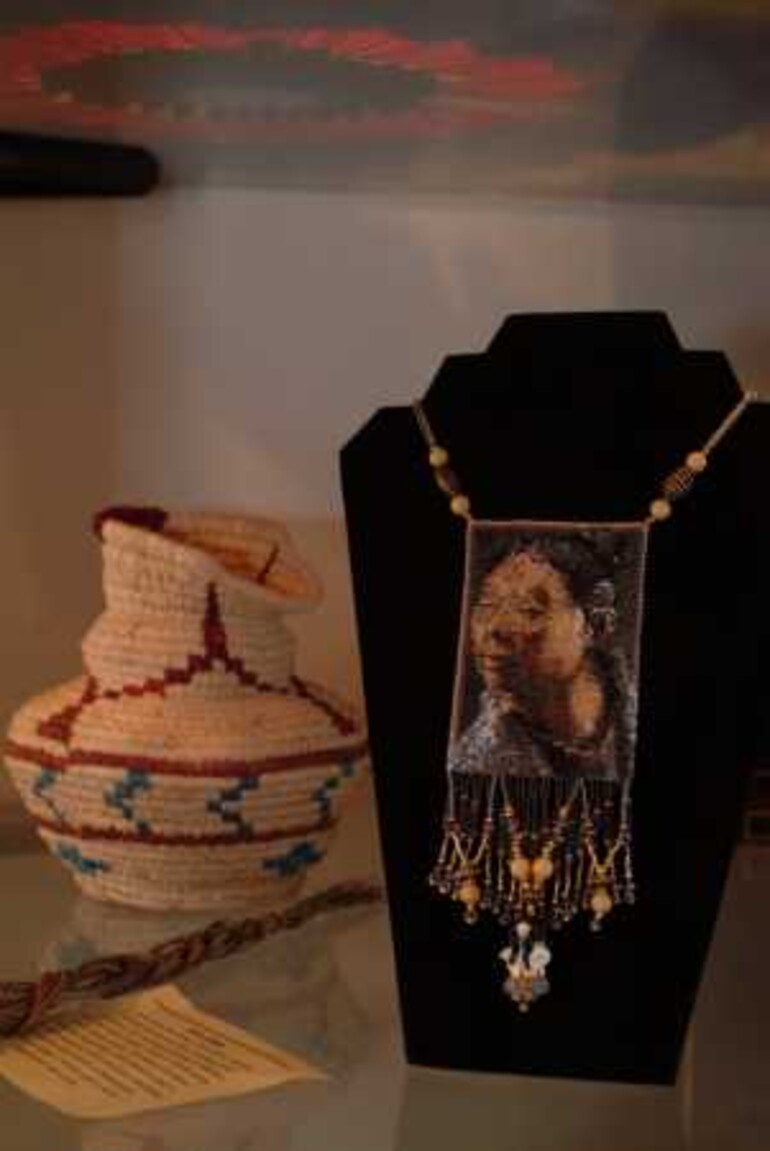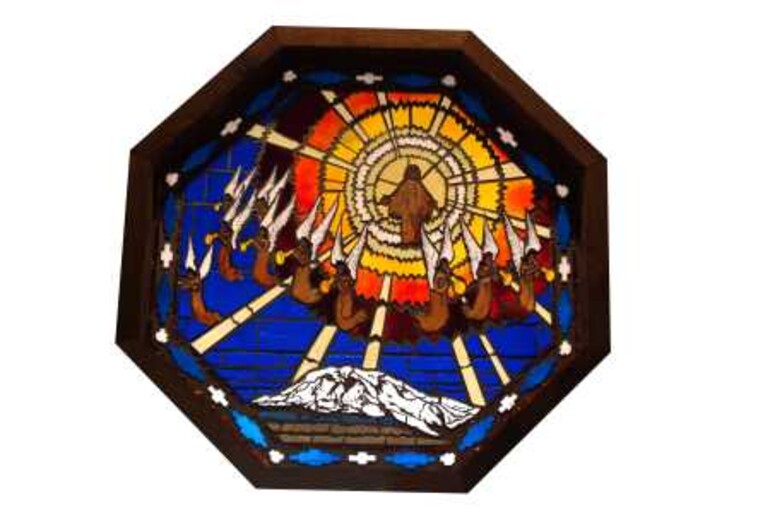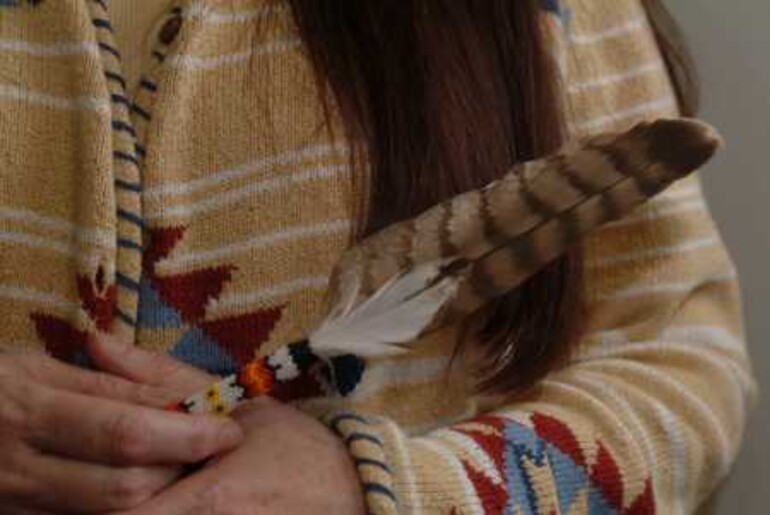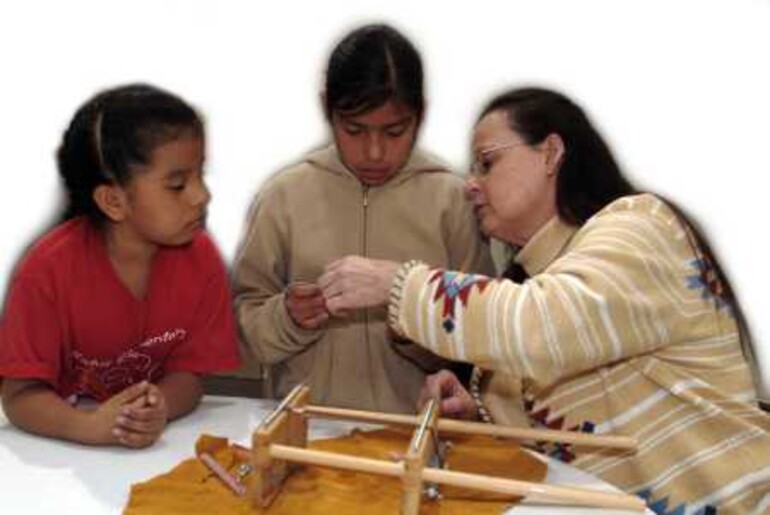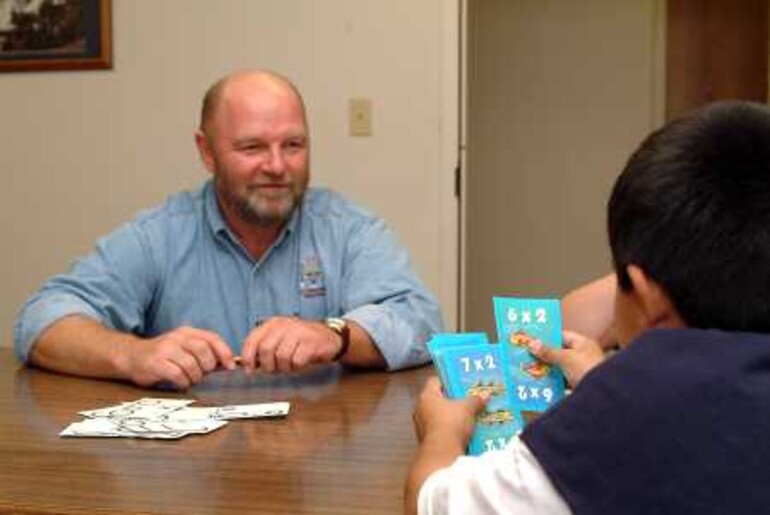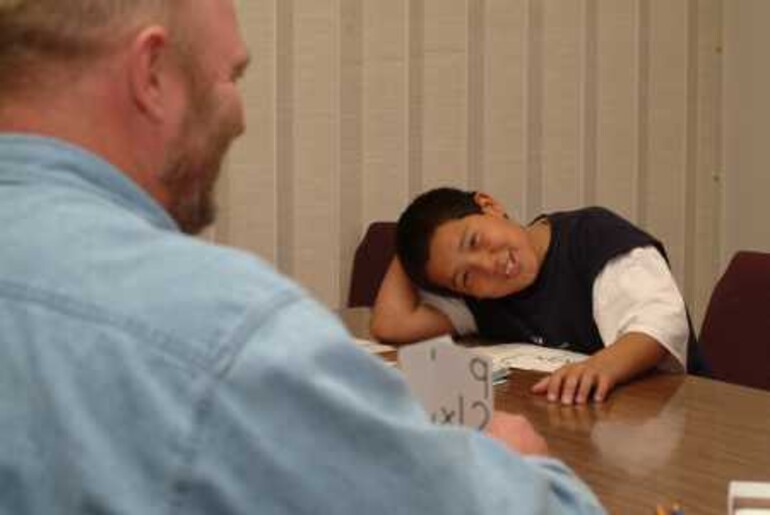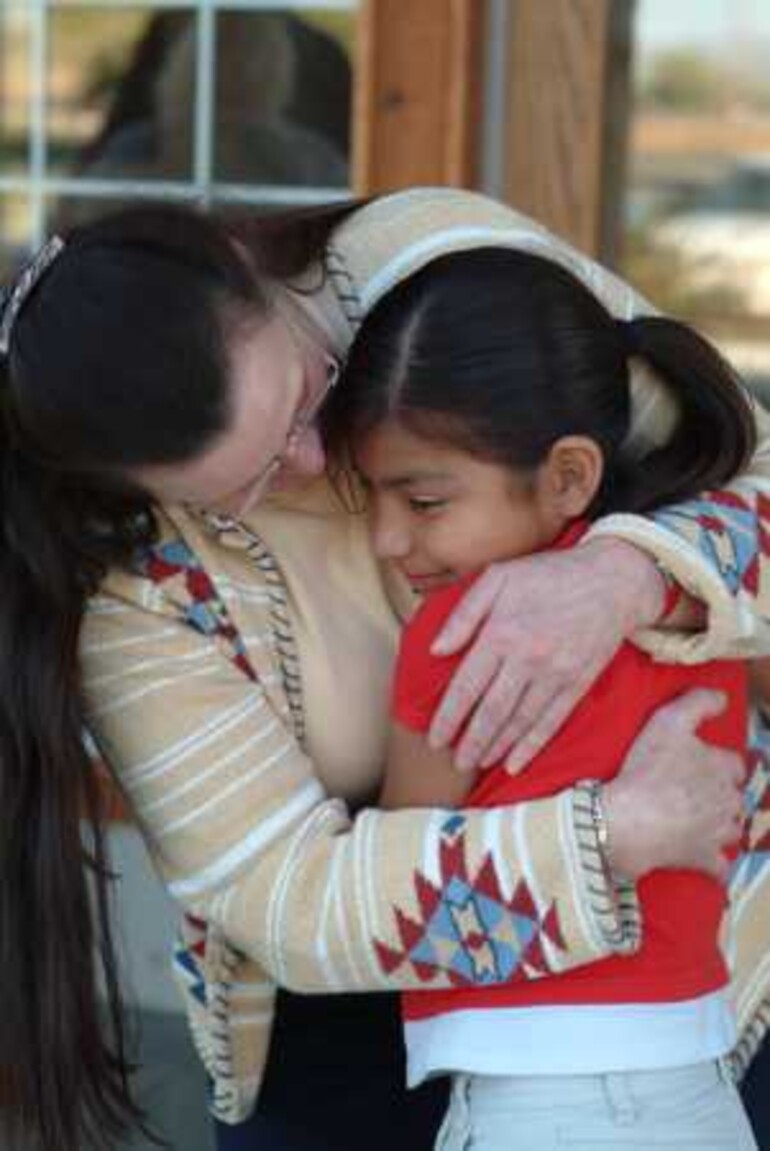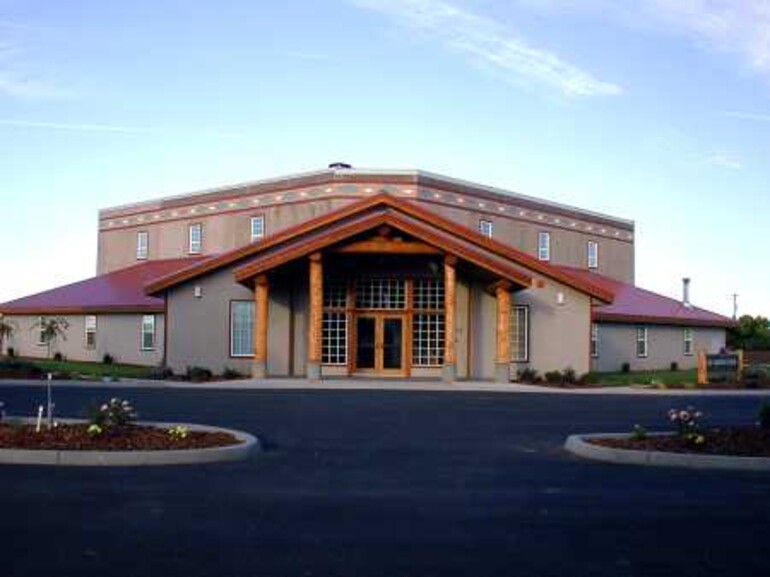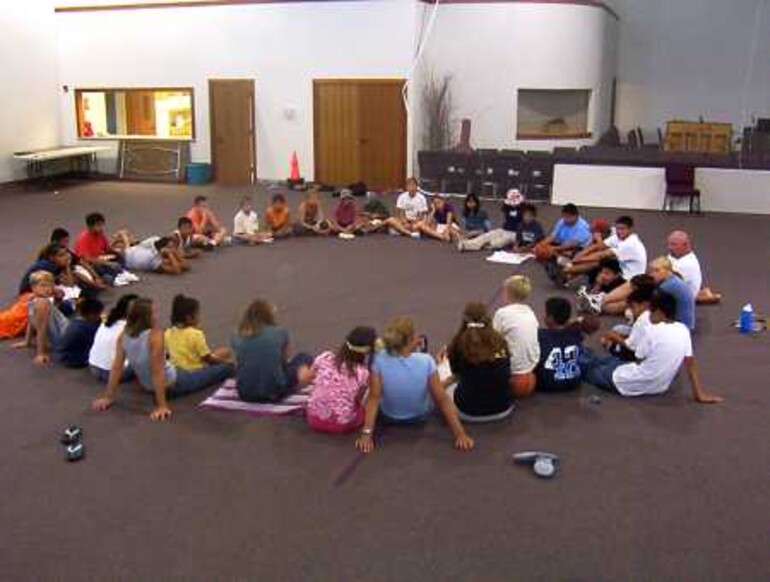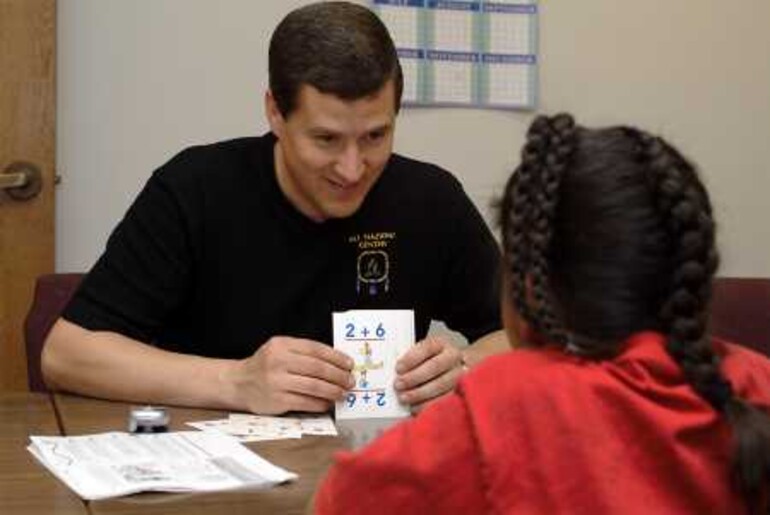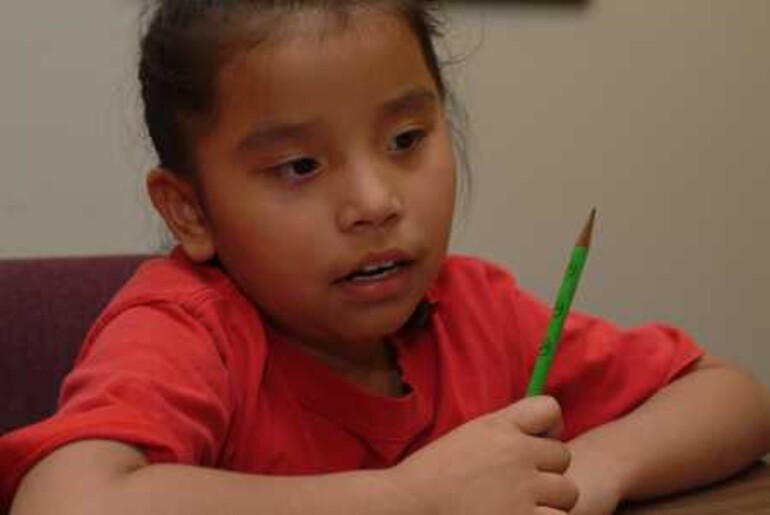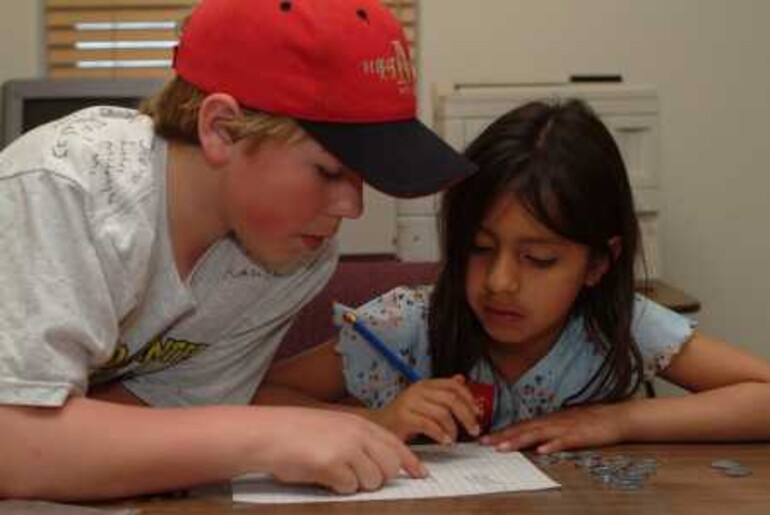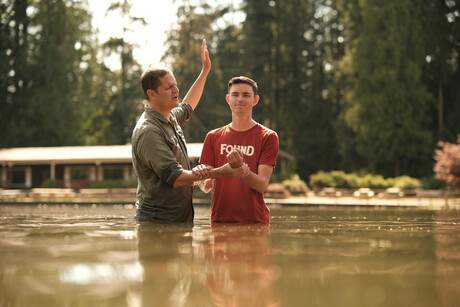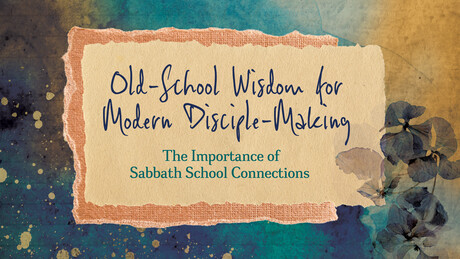"I hate white people in my heart, and you two look white. I hate you in my heart!" announced the tribal elder as he stared at Saundra and Peter Trzinski where they sat amid 200 Native Americans at a feast in a Yakama* longhouse.
“I knew right then that God had called us to know and reach these special people," Saundra says. These special people are the members of the Yakama Nation, a confederation of Native Americans living on the sovereign 1.4 million-acre Yakama Reservation in central Washington.
When Saundra and Peter saw their nest emptying in the 1990s, they decided to give back to God through service and ministry. They looked into overseas mission opportunities and received invitations for two-year assignments in Japan, China and Russia. But they wanted to make a longer commitment to the Lord's work, so they kept looking.
While attending camp meeting in their home state of Wisconsin, Saundra and Peter heard Monte Church, Northwest Native Ministries director, speak about the mission opportunities among the Native people of the Pacific Northwest and Canada. Saundra looked at Peter and said, "This is it!"
Monte told the Trzinskis about a small church in Wapato, Washington, where a group was concerned that no one was trying to spread Christ's love across the Yakama Reservation. "North America seemed to be a forgotten mission field," Saundra explains. "There are so many people in our own backyard, so to speak, that need to know the Lord."
Saundra and Peter quit their jobs and began at the Wapato Church as task-force workers, a half-salary position with the remainder of their support coming from their savings or local church members.
Saundra began energizing the children's program into popular Kids for Christ meetings with crafts, a puppet ministry and other activities. "When Pete and I came here, the Native children would tell us that we wouldn't be here long. No one stays with them long," Saundra says.
Meanwhile, Peter got to know his congregation and began to visit members of the Native community. "Most Native Americans do not trust Anglos," Peter points out. "I met with Thomas BlackEagle, a Yakama Nation Christian minister, and he helped me to understand better the culture I was encountering. He said a 'short' term of service to the Yakama was 10 years, and to do any good it would take 20 years minimum." Suddenly, their mission was looking very long-term indeed.
Understanding that trust was important, Saundra set about to learn as much as she could about the history and culture of the Yakama Nation while studying their native Sahaptin language, which many tribe members don't even know. With Saundra providing cultural guidance, Peter began to steer his church to reach the Native people.
As the Hispanic portion of the Wapato church grew to about 95 percent, it became apparent that a new meeting space emphasizing Native culture was needed. "The two cultures just did not mix," Saundra observes. Peter and Saundra dreamed of building a church and community center dedicated to the Native people on the reservation, and soon that dream was a reality.
"To tell the truth, I still don't know how we raised all the money," Peter admits. When another trip was cancelled, Maranatha Volunteers International came at just the right time to help build the center. "God was in it for sure," says Peter. Thanks to donations from all over the country and countless hours of volunteer labor, the All Nations Center now stands debt-free.
Its schedule, however, is anything but free. Activities flood the calendar, including health, stop-smoking and exercise seminars, and weekly Alcoholics Anonymous speakers' meetings. In addition to providing a place for cultural gatherings like Native weddings, funerals and mini-powwows, the All Nations Center is a vibrant church body with weekly services. The center also offers after-school tutoring, cooking classes and intramural sports. "Basically we want to utilize this building seven days and nights a week," Saundra says.
The Trzinskis place special emphasis on the idea that the Natives and the Anglo members already worship the same Creator, though often in different ways. "There are so many beliefs that the people here have blended that I can go to a service and see some old Catholic symbols, Shaker bells being rung, Waashat (Native religion of the longhouse) songs being sung and a belief in a mighty God who will punish them if they don't live right," Peter explains. "They believe in God, just not in what Jesus Christ did for them."
The children's programs continue to pull especially hard on Saundra's heart. Providing an active program for a growing group of children is always a challenge, but when the Yakama children smile, Saundra knows it's worth the effort. And yearly events such as a swimming party, Vacation Bible School and a summer day camp called Lakayxitlama (Seekers of Light) help the Native children have fun while feeling safe and welcome at the center.
"It's a haven. It's a home," Monte says. "Adults feel safe; children feel wanted."
Part of Saundra's innate ability to understand and connect with the Yakama people comes from her own Native heritage—she is part Chippewa and Cherokee herself. Growing up, she listened with rapt attention to mission stories and dreamed of one day being a missionary.
The road to Saundra's mission was a long one, winding through nursing school, an unhappy marriage, a divorce and becoming a single parent. But through her trials, God was helping prepare Saundra for the special mission He had for her. "I love working with the Native people here. Being with them has taught me so much about myself—where my craftiness comes from and some of my personality traits," she explains.
Peter, on the other hand, is automatically a "tribe of one" on the reservation with his 100-percent Polish heritage. Raised a Catholic, he felt God's calling at a very young age and asked to go to the seminary after he completed eighth grade. His parents refused.
"Life got pretty bad after that," Peter admits. "I know that a call to be a Catholic priest was not what God wanted, but I also know He wanted to use me in a lot more powerful way. When I was told no, I went astray." As he ran from God, Peter found temporary solace in alcohol, drugs and a gang.
But when Peter again heard that still, small voice, he responded, sorrowful of his past and ready to pursue a better path. "When God called, He also gave me a new heart," Peter says.
With Saundra by his side, Peter has put that new heart to good use.The more Peter and Saundra learn about the Yakama Indians, the more they realize the unique challenges of ministering to them.
As Saundra explains, most of the people on the Yakama Reservation are living in a developing country within American borders. "It’s hard to believe this exists in the United States, but the 'Land of Plenty' is spiritually forgotten," she says.
The conditions in which many Natives live make the ministry of the All Nations Center very costly. The Natives first need roofs over their heads as well as what most of us consider basic necessities: electricity, phones, running water and, most of all, heat. More than half of the people don't have transportation, making it impossible for many to come to the center for meetings and events.
Food is served at all the center's community events to ensure that they are helping to meet the physical needs of the Native community while reaffirming the Native social custom of sharing a meal.
Unfortunately, task force salaries don't go very far with the high cost of living on the reservation, and since they arrived in 1998, Saundra and Peter have gradually depleted all of their savings and retirement funds. Though Peter became the full-time pastor of the All Nations Center and the nearby Zillah Church, Saundra had no choice but to return to work as a civil engineering technician for the U.S. Department of the Interior, Bureau of Indian Affairs, while still trying to invest every spare moment into her Native work.
She recently took a leap of faith and resigned her engineering job to be the half-time All Nations secretary. "We have enough funds to keep her in the position for three months," says Peter. "After that, God will have to provide." Awaiting God's provision has been an active walk of faith for Saundra and Peter throughout their many years in the Yakima Valley.
They now dream of establishing a similar center in White Swan and additional Branch Sabbath Schools further into the reservation. "We have lots of ideas, but it takes so much capital," Peter says.
Meanwhile, Saundra has designed and continues to maintain the center's Web site (www.allnationscenter.org) and has created an online storefront (www.allnationsstore.com) so the Natives can sell their crafts directly to the public for a fair price.
And the All Nations Center continues to grow. Nearly 40 people have been baptized in the past 14 months, including the vice chair of the Yakama General Council.
This hard work and personal investment doesn't come without struggle and sacrifice. Their marriage has been stretched by busy schedules and endless work. "Saundra needs her husband to be as kind, forgiving and loving to her as he is to his church members and pre-Adventists," Peter confesses. Though they both miss their children and grandchildren, who are thousands of miles away in Wisconsin, being together in service has helped Saundra and Peter get to know each other even better.
Despite the challenges, their sense of mission is unchanged. Just as the Apostle Paul became all things to all people so that by all possible means he might save some (1 Corinthians 9:22), Saundra and Peter have transformed themselves with God's help into beloved friends among the Native people. The word Yakama means “growing family,” and growing the family of Christ to include these special people remains the Trzinskis primary mission to this forgotten nation.
*The Yakama Nation has reclaimed the correct spelling of its Native name, although the surrounding town and valley continue to be known as Yakima.




